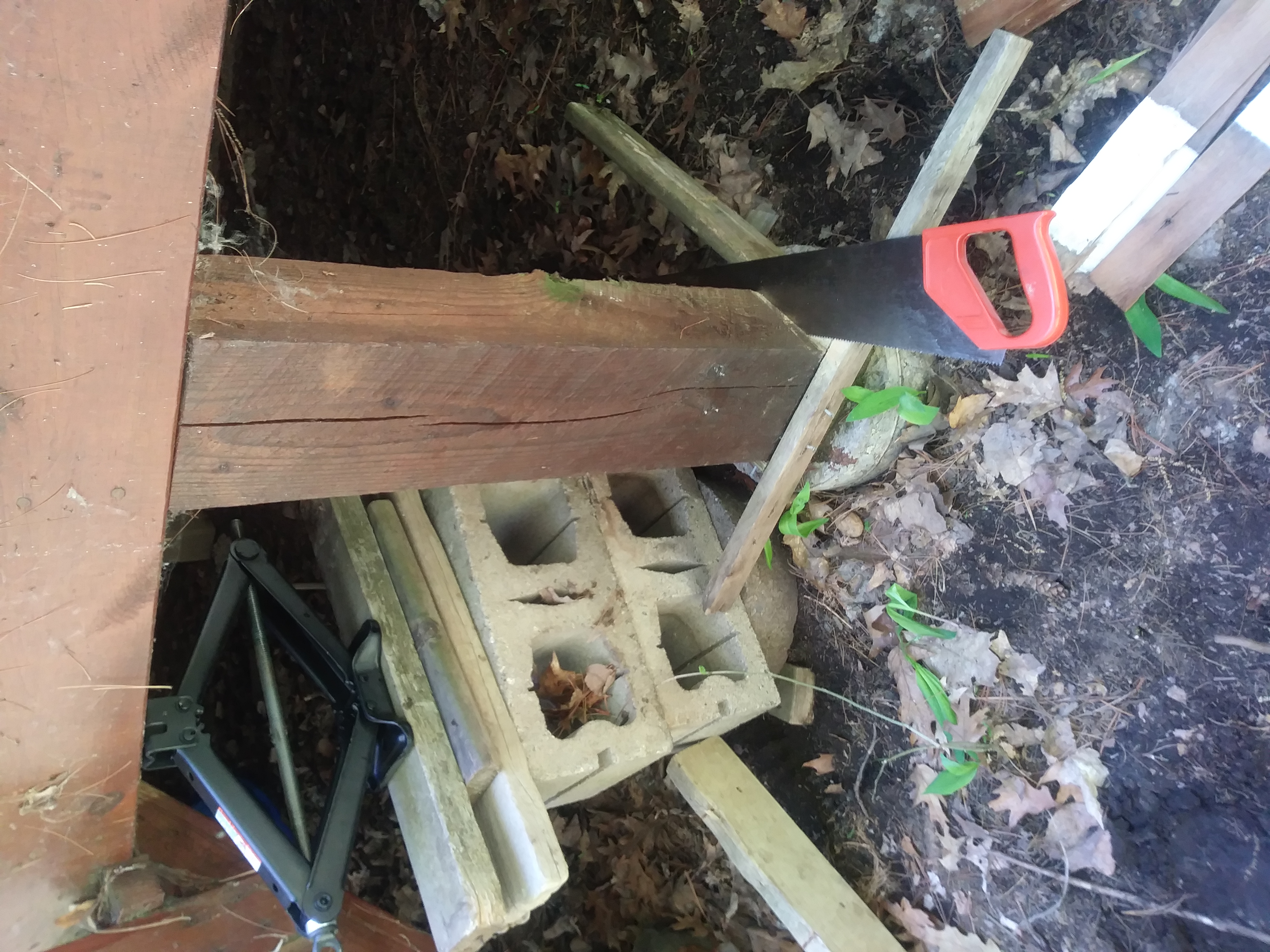JUNE 9, 2019 – Though Dad died over nine years ago, I still think a lot about him—what he would think, what he would have to say about one thing or another. I’m especially aware of him when I’m up at the lake, walking the woods, observing nature or . . . working on some cabin project.
Today I tackled a project I’d been contemplating for some time. Frost heaves had altered the height of the footings of an exposed deck. This past winter created more noticeable havoc than usual. First I examined “the situation.” Next, I noodled it. Finally, I did something about it.
This project would have been right up Dad’s alley. I decided to take full advantage of that fact. I pretended that Dad had hiked from the old family cabin to the Red Cabin to assist and consult. “Whaddaya think, Dad, I said. “What’s the best way to calculate exactly how much to cut off the bottom of this post?”
“Well,” he said, “a guy could get a very straight two-by and where the deck joins the house frame prop up one end of the two-by until it’s absolutely level . . .”
As I applied a simple geometric solution to my question, I genuinely felt I was channeling Dad. Throughout the project, which went exactly as planned, Dad’s influence was there, every step of the way.
How this occurred was plainly explainable. I disciplined myself to think the way Dad thought; to mimic him as I could easily imagine his every thought and action.
In the process, I came to understand the value of “practical engineering.” By vocation, Dad was a court administrator; by avocation, a musician, a writer, a voracious reader. At the cabin, though, he was project man, which meant he was a problem solver, which meant he was a “practical engineer.”
He’d identify or be confronted with some maintenance or improvement challenge—a problem. He’d then analyze it entirely on his own. He didn’t jump on the internet and Google or search YouTube for a “how to” video. Based on his considerable experience and practical knowledge and very logical thinking, he would figure stuff out. He would then pull the appropriate tools from his sizable inventory, all well organized (unlike mine), and apply them to the elegant solution he’d cleverly devised. Every step, every motion was executed with the utmost precision. Dad was not fast and sloppy. He was slow and methodical. I don’t remember a single sub-par result.
The more problems he solved, the better he became at solving them.
As I prepare to re-enter another frenetic workweek, so much of it at a computer screen, I want to channel Dad more often. I’ll approach and solve problems as he did. I’ll apply his “practical engineering” to other contexts, meeting complex challenges the way he met them: observe, analyze, develop a methodical plan and execute it with patience and precision.
And one of these days, I’ll do a better job of organizing my tools.
© 2019 Eric Nilsson
